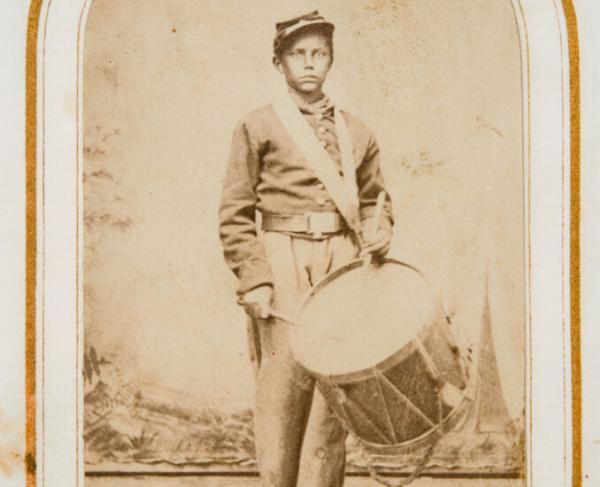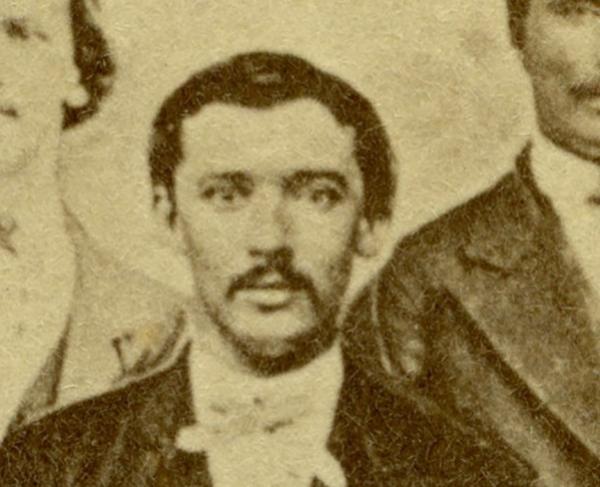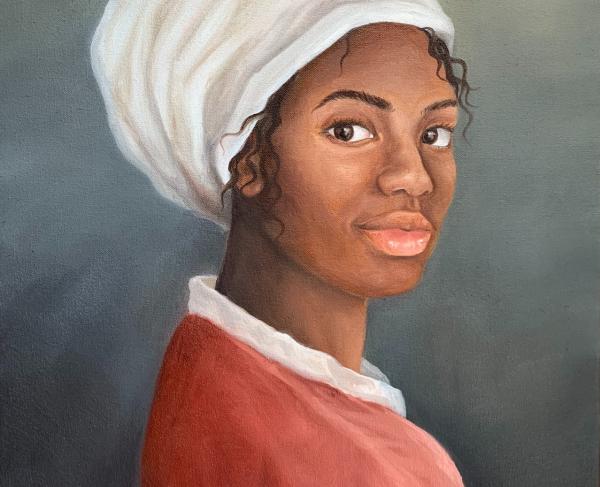David Miles Moore Jr.

David Miles Moore (Jr.) was born in 1848 to parents David (Sr.) and Elizabeth Moore (née Fox). As free African Americans living in the north, the family was listed on the 1850 and 1860 United States Federal Censuses. The two censuses also recorded different locations of birth for the family members, one noted Pennsylvania and the other New York.
At age two Moore (Jr.) and his family were living in New York where Moore (Sr.) worked as a free laborer. While neither he nor Elizabeth could read or write, Moore (Jr.) and his siblings attended school. Moore (Jr.) had seven siblings, five sisters and two brothers; he was the fourth oldest (middle).
At the beginning of the Civil War, Moore (Jr.) was around fourteen years old. Due to his age and race, Moore could not join the Union Army to fight. That changed with the passing of the Second Confiscation and Militia Acts in July 1862, which allowed the Union Army to utilize African Americans as a workforce, and the issuance of the Emancipation Proclamation, which allowed Black men to serve as soldiers in the army. Recruiting for the 54th Massachusetts Volunteer Infantry Regiment—the first black unit created in the Union Army—began in February 1863. Recruiting efforts extended beyond Massachusetts’ borders to New York, Pennsylvania, even as far as Canada. Advertisements offered recruits “$100 bounty”, “$13 a month!” pay, and “state aid to families”.
In April 1863, at the age of sixteen, Moore traveled to Readville, Massachusetts, and volunteered for the 54th Massachusetts. An estimated ten percent of the Union Army consisted of boys under the age of eighteen, like Moore. He was just five feet tall at the time. Nevertheless, the Union Army accepted him as a Private, eventually becoming a Drummer in Company H. He received a Union uniform and began marching and musketry training. However, as a Drummer, Moore’s role was to play military commands that directed troop movement during and outside of battle; he was one of ten drummers recruited for the 54th Massachusetts.
Two months after recruiting started, the 54th Massachusetts achieved over one thousand enlistees. Under the leadership of Colonel Robert Gould Shaw, Moore and the 54th Massachusetts departed for war on May 28, 1863 proudly marching through Boston. The 54th Massachusetts engaged in four significant battles between 1863 and 1865: James Island, SC; Darien, GA; Fort Wagner; and, Olustee, FL. Demonstrating bravery and valor in all of these battles, the 54th Massachusetts was disbanded in August 1865 following the end of the war. Moore survived and returned home to New York.
Moore did not live the civilian life for long as he reenlisted in the Army in 1866 when Congress passed legislation raising six African American units. Based in New Orleans, Louisiana, and then Fort Clark, Texas, Moore was a soldier in the 39th and 25th Infantry Regiments. In a nod to his role as a drummer in the Civil War, Moore served in the Regimental Band.
Moore’s second military service concluded in 1870. He returned to New Orleans where he worked for the Customs Department as a Weighers and Gaugers Department laborer. There he met Adele (or Ardele) Collins, and they married in 1875. The Moores had six children and remained in New Orleans for at least fifteen more years. By 1900, they and two of their children had relocated to Saratoga Springs, NY. The 1900 United States Federal Census recorded that Moore owned his house outright and worked as a driver.
In 1897, a private group of citizens memorialized the 54th Massachusetts in a bronze monument on Boston Common designed by Augustus Saint-Guadens. The image depicts Shaw and the soldiers marching down Beacon Street, off to war. At the very front of the image is a small drummer boy.
Moore died in Saratoga Springs, New York on May 30, 1904, at the age of fifty-six. He was buried in St. Peter’s Cemetery in Saratoga Springs. Adele lived a further twenty years passing away in 1925.

